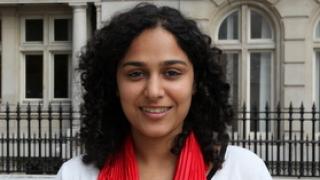
In any given conflict, the humanitarian response - the aid and action needed to address the problems of persons and regions affected – is critical. It typically includes providing affected communities with access to the three pillars of health, food and water and shelter. Increasingly, it is being argued that delivering education during conflicts should form the ‘fourth pillar’ of humanitarian response.
Imparting education during conflict has an enormous impact on the lives of people. Education not only performs a learning function in such circumstances but also equips people with vital life-saving skills which help them battle the aftermath of the conflict. For instance, educating communities afflicted by armed wars about safeguard mechanisms against sexual exploitation in conflicts, is an essential survival message. Education therefore enables communities to better confront the reality of their changed circumstances.
Moreover, education is a universal legal right. The UN’s authoritative document on human rights – the Universal Declaration on Human Rights – recognises the right to education for all persons. This right is also enshrined in other international treaties, such as the Convention on the Rights of the Child. Given the inalienable nature of this right, it should not be diluted in any situation and especially not during a conflict-driven humanitarian crisis.
In 2010, the UN General Assembly adopted a landmark resolution on education in emergencies, calling on member states to ensure that “the right to education [is] an integral element of humanitarian assistance and humanitarian response”. The Inter-Agency Network for Education in Emergencies (INEE), a global network of NGOs, UN agencies, donors, researchers and individuals also champions the cause of education in emergencies. INEE has developed pioneer ‘minimum standards for education in emergencies, chronic crises and early reconstruction’ – essentially global best practice governing the provision of education in emergencies.
The most vulnerable victims of conflict are children, who are cruelly uprooted from educational institutions. UNESCO noted that in 2011, nearly half of 57 million out-of-school children lived in conflict-affected countries. Conflicts can irreparably damage children, severely hampering their learning and subjecting them to immense emotional trauma. Adopting a culturally sensitive education curriculum in such regions which promotes tolerance and lasting peace can heal many scars of conflict and assist in returning to normalcy. Activists state that schools also provide physical refuge to children, shielding them from violence outside such as killings and kidnappings. However, indiscriminate attacks on schools abound in conflict zones, such as suicide bombings and the use of fuel-air bombs in Iraqi and Syrian schools respectively.
Further, the possibility that an entire generation of children will lack basic education can adversely impact the long-term development strategies of the region, such as through low economic and social productivity. Placing children at the heart of education in conflicts is also crucial because of Millennium Development Goal 2 – the target of providing universal primary education by 2015. UNESCO has cautioned that the persistently high number of out-of-school children will impede attainment of this objective.
Obstacles do exist in delivering education during conflicts. The world faces a chronic teacher shortage today, as 58 per cent of regions globally lack enough teachers to achieve universal primary education. This situation is exacerbated in conflict zones where safety hazards and low incentives dissuade teachers from working. Additionally, the education sector is often underfunded in humanitarian appeals. In 2013, UNICEF faced a shortfall of $44.8 million in its appeal for the education sector in the Syrian conflict.
Nonetheless, the determination to alleviate suffering in conflicts through education remains strong. The UNESCO Director-General’s observation that “education [is] a top priority in response to the Syrian crisis” bears testimony to the UN’s resolve on this issue. With sustained commitment from nations, this is an achievable goal.
Mrinalini Singh is a Research Officer at UNA-UK.
